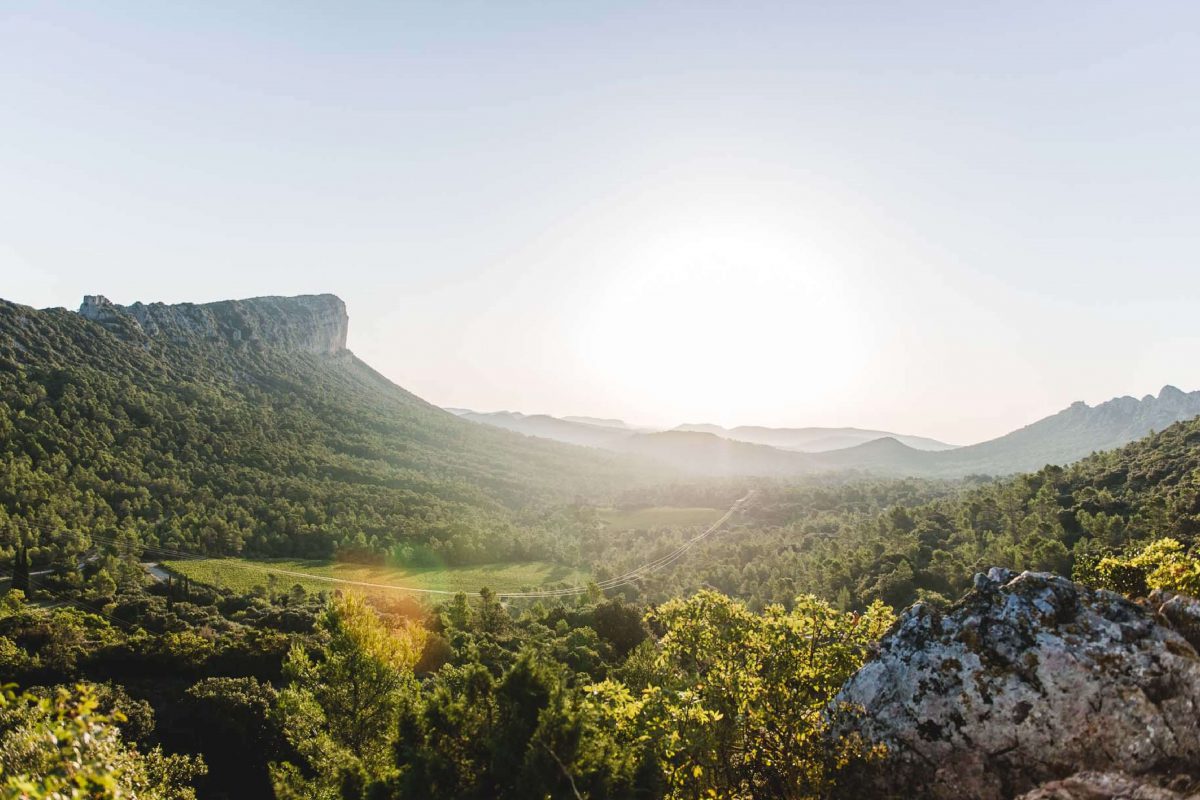Writing
our History
"Our story began with a dream to breathe new life into an age-old terroir on the edge of the Mediterranean, on the Pic Saint-Loup Mountain."

In the beginning, an intuition
Back in the 70s, Jean, a recent agronomy graduate from Montpellier, and avid rock climber with a passion for high mountains and wild, rugged landscapes, with Marie-Thérèse at his side, discovered the mountainous slopes of Hortus and Pic Saint-Loup which wrap around the small Combe de Fambetou. Here, they came across several abandoned plots of old vines and fallow land, where the extraordinary untapped potential of the scree cones was immediately apparent. The story began with a will of iron and not a penny to their name.
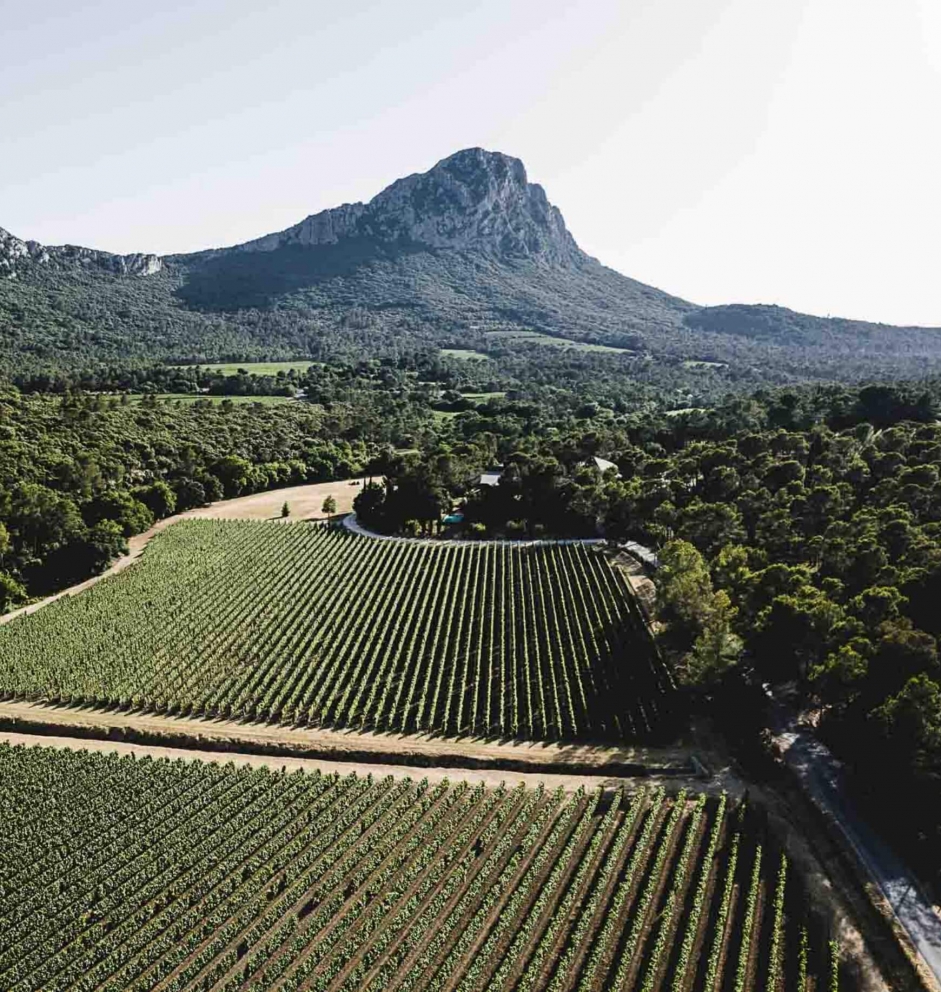


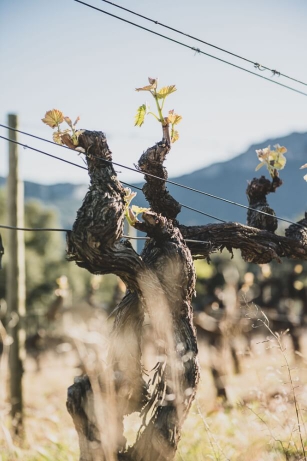
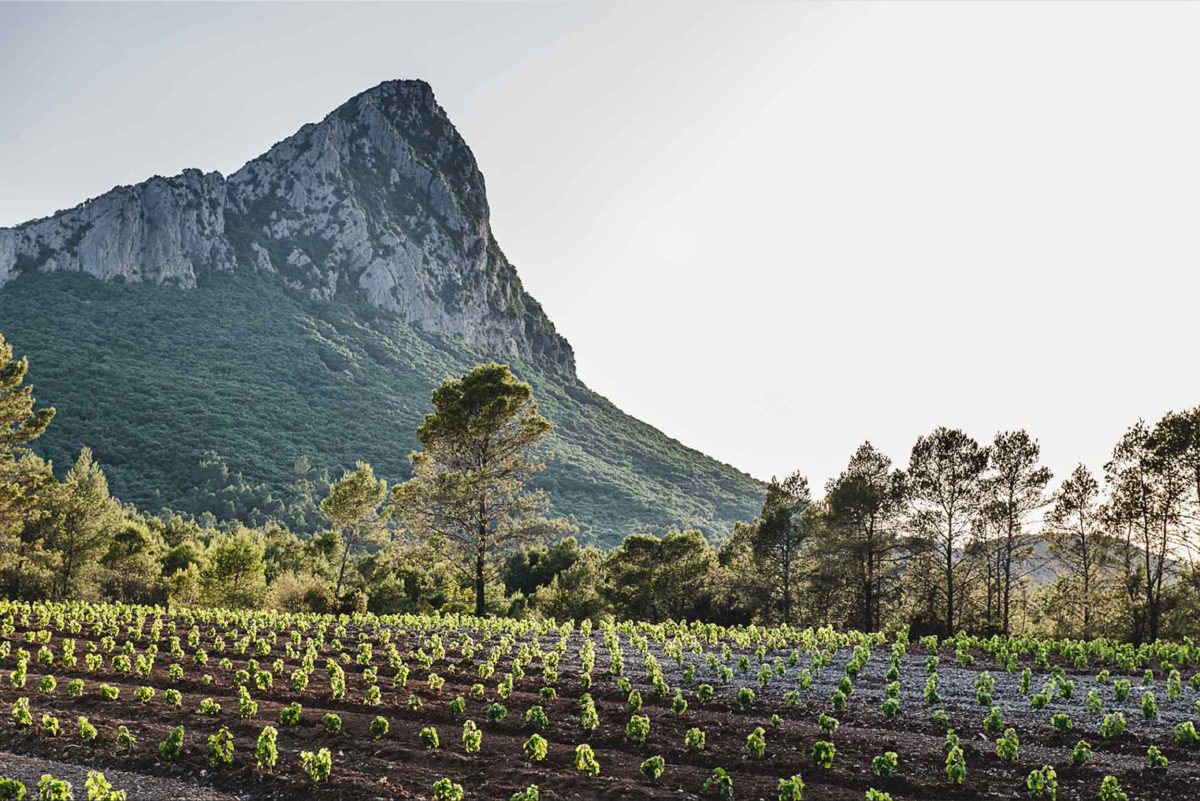
Initially only 4 hectares of land were cleared, then planted. Determined to truly get to grips with this unfamiliar territory, it would take 15 years for the first vintage – the 1990 – to come to fruition.
The family home and winery were built at the same time as the vineyard, the overall style striking an accomplished balancing act of ultra-modern and forest architecture.
And over the years, their four children have returned to the estate, each instilling their unique personality and experience.
Our vineyard is borne
of half a century of patient labour.
Between cliffs and garrigues
Domaine de l’Hortus lies in a valley at the centre of the garrigue hinterland of Montpellier, 30km to the north of the city, where the legend of Pic Saint-Loup was born. The heart of the terroir nestles on the calcareous scree cliffs of the two mountains that dominate the landscape, Pic Saint-Loup and Hortus, both shaped over time and imparting geological complexity and welcome shelter from the vagaries of climate.
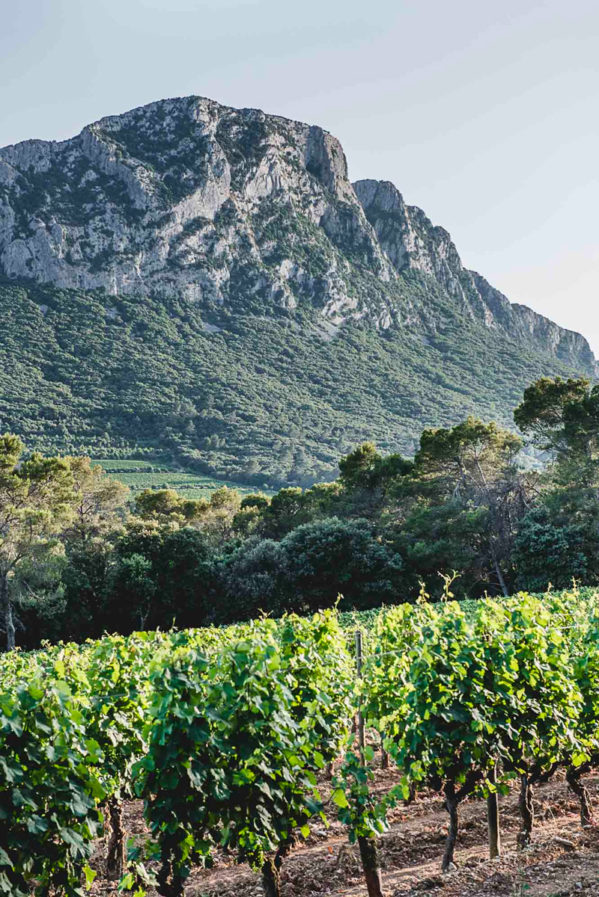


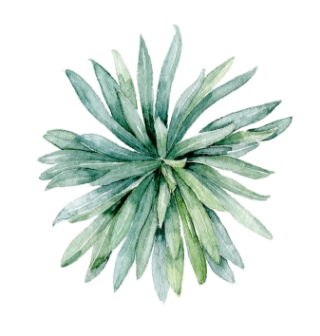
“It is a place
of great beauty,
where only excellence
will do.”
Caught in the crosswinds
Located between the Mediterranean Sea and the Cevennes mountains, the estate enjoys a typical climate characterised by the warmth and humidity of southerly sea winds, and the dry, cool air of the northerly winds. The seasons come and go, from dry summers to rainy autumns.
